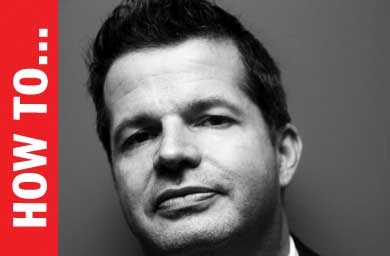As marketers, understanding people and their wants, needs, hopes, dreams, aspirations, everyday challenges, frustrations and victories is, or should be anyway, at the heart of what we do. We all hope that by understanding our target audience better we can find that spark of insight that will be the key to unlocking a brand. So how can we do this?
First of all we need to realize that even if they are part of our target market, not all consumers are of equal value or equal influence. So we need to decide whether it’s the “mass” of the market who we are interested in understanding or whether it’s those people who are really interested in your products, who get excited when there are new innovations, tell their friends about them and are generally your best advocates if you can get them interested. Increasingly, it is this group of consumers we should pay attention to.
Secondly we need to get out of the habit in terms of demographics and start thinking about people. Demographics are a classification tool not a tool for gathering insight. The days when you could gain a good understanding of me by knowing my age, gender and marital status are long behind us. Similarly we need to cluster people together in meaningful ways.
Talking about 'Asian women' or 'Asian youth' is not useful beyond a very basic level. We need to group consumers together in more meaningful ways based on shared behaviours, shared values, needs, aspirations, usage typologies etc.
Thirdly we need to stop asking so many questions! We still insist on boring our respondents into submission by asking long questionnaires about things they are not interested in. Marketers seem to find it hard to grasp that most consumers are nowhere near as fascinated by their category as they are, and have other much more important things to worry about. Just because I buy and use your product does not mean it interests me or that I have thought much about it.
For example, I buy the washing powder in my household, but beyond a basic level of utility (the price is affordable, it seems to work, you don’t have to use too much in each wash) I really couldn’t tell you why I choose it versus the competitors. So asking me a long detailed questionnaire is likely to lead to little useful information and mainly to annoy me, because I have yet to see a box marked 'I simply couldn’t care less' on any questionnaire! Talk to me about something I am interested in though and I’ll happily answer your questions all day. But if it’s something I am not interested in, let’s try to make the questions brief, focused and as interesting as possible
So the movement in research is away from asking direct questions and moving to a greater emphasis on qualitative, observational and ethnographic research; by observing how people behave at home, in store, and when interacting with their friends and family we can draw our own insights and conclusions as to the motivations for their behavior. We can also take advantage of the opportunities that social media monitoring gives us to listen to and learn from conversations about our brand and category.
There is a lot of conversation out there, and to not take advantage of it to add a lot to our understanding of the issues and how consumers are talking about them would be to miss an opportunity.
Got a view?
Email marie.green@media.asia
How to really understand your consumers
Guy Hearn, director of communications insights for Asia Pacific at Omnicom Media Group, shares his thoughts on how to really understand your target audience.











